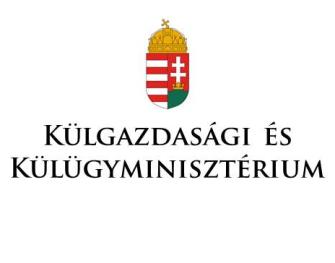Reflections on Bartók in Tbilisi
The most recent site of the international programme series ’Bartók-135’ was the Georgian capital, Tbilisi, where the Liszt Academy was welcome with the sequel to its former project series ’Reflections’; this time focussing on Bartók’s works.
Encouraged by the success of the Liszt-reflections project, the Liszt Academy has set out to realise a number of reflection projects also within the programme series International Bartók-135, which implies workshops concentrating on Bartók’s emblematic compositions. The project centres around the altogether four students of the two music academies composing contemporary music pieces inspired by and reflecting on certain works of Bartók’s while retaining an identical orchestration. Following a few day’s rehearsals, a concert is given with the original compositions as well as their reflections performed by the students of the two music schools.
A most complex project came about in Tbilisi, the capital of Georgia, as besides the four Bartók reflections, also a masterclass was held by Gábor Farkas concluded with a piano recital.

The four students of the two academies, Tbilisi State Conservatoire and the Liszt Academy created their own reflective compositions inspired by four selected works of Bartók (Allegro barbaro, Rhapsody No.1, Constrasts, the 2nd movement of String Quartet No. 5.) (Parsa Shomali: Rapshadow 1.5, Giorgi Papiashvili: Reflections, both of them tutored by Maia Virsaladze and Balázs Kecskés D.: String quartet and Lőrinc Szécsi: Garble).

Considering the challenge lying in the compositions, the rehearsals were partly run by Géza Hargitai, professor of the Liszt Academy and as a member of the Bartók String Quartet, a highly experienced performer of Bartók’s works and by Gábor Farkas, the animated interpreter of the composer’s piano pieces. The Tbilisi State Conservatoire delegated Nodar Jvania, a member of the fifty-one-year old Georgian State Quartet and the dean of the institution and programme manager of contemporary music, Nino Jvania to assist the students with the acquisition of the pieces.

The strict schedule of the event did not at all defeat the violinists of the Liszt Academy, Karolina Kondorosi and Edina Pinkert, who both did extraordinarily well in performing the four reflection pieces and the four original compositions alongside the Georgian music students in the concert hall of the Tbilisi State Conservatoire after just a few days of joint rehearsals. The event – also aired by the Georgian public television – was opened by the Hungarian ambassador, Sándor Szabó and the president of the conservatoire, Reso Kiknadze.
The project represented an excellent opportunity to prompt the students to learn about each other’s music and music educational culture, to acquire a more profound understanding of Bartók’s work as well as to become more familiar with contemporary music trends and the activities of the two composition departments.
Click here to read more about the programme series and its sites.
|
|  |



